Advanced computing
Business and society are entering a new chapter of computing. Silicon is being stretched to its limits. Many computational problems remain unsolvable. The sustainability imperative and need to find alternatives to power-hungry computation is changing everything.
The response is coming. Advanced computing technologies will revolutionise performance, cost and power consumption. We are preparing our clients for an emerging hybrid future that will blend classical approaches with novel silicon architectures and quantum, photonic, biological and neuromorphic computing. Astonishing advances in technical performance and business value await.
What we do
We can help you identify the advanced computer capabilities you need to reach your goals – and fit them to your needs. Our expertise is founded on decades of developing world-first computing technologies for our clients. We’ve also been investing in practical research into the coming technologies to inform your strategic plans and accelerate your path from opportunity to high-impact hybrid applications.
Novel silicon architectures
Novel silicon architectures will truly harness the power of AI to enhance user experiences. The secret is in the structure. With the physical limitations of reducing the size of foundational electronic components (i.e., transistors and diodes), the future of silicon-based electronics will be dependent on layered designs. So far, these basic components have been manufactured in one-layer wafers, but now multi-layer designs are being considered for even quicker and smaller chips at a lower price.
Ultra-low power computing for AI workloads is increasingly crucial. CC’s years of experience here has informed the development of our in-house ecosystem for creating DSP cores to enable flexible, efficient low-power IP blocks, FPGA solutions and custom ASICs. We are also actively exploring chiplets and 3D heterogeneous integration.
Photonic computing
Most computing today utilises the energy contained in electrons to process data. Photonic computing replaces them with photons, using light waves to process and store data. Because the speed of light is unsurpassable, photonics provides a theoretical minimum latency and so makes light a better computing medium than electricity.
In principle, we could also observe a 10-50x bandwidth improvement over traditional computing due to the bits travelling at the speed of light. More, a 10x energy efficiency can be obtained with optical computing as one can increase the processing power without having to increase the electricity supply, which is the case for classical electronic computers.
CC’s innovation here is underpinned by our experience in developing photonic chips for medical imaging. We’re currently working on silicon photonics integrated circuits (PICs) for high speed and low latency and power consumption.
Biological computing
Encoding and storing information in biological cells is set to accelerate more sustainable and reliable computing. In 2020, a DNA storage machine developed by CATALOG, in partnership with Cambridge Consultants, achieved a landmark moment when it encoded the English-language Wikipedia into DNA – demonstrating success in terms of speed, scale and accuracy.
How does biological computing work? It uses biologically derived molecules such as DNA and proteins to perform. Advances in nanobiotechnology have led to the discovery of methods to program living cells to respond in predictable ways to certain chemical inputs. While this is costly and labour intensive in the first instance, it then becomes extremely cost-effective to grow billions more.
As our example proves, writing information into DNA makes it possible to store vast amounts of data very inexpensively in a smaller and passive form – reducing energy cost in comparison to silicon. As the energy used by data centres doubles every four years, biological computing promises a more sustainable future.
Quantum computing
Quantum computing is based on the physical phenomena where electrons can simultaneously behave as material particles or waves. This property changes the basic idea of storing and processing information in the form of binary bits (0 or 1) and instead using qubits (any number from 0 to 1). Particles will be able to represent any of an infinite number of states and interact with other particles in infinite different ways.
Quantum computers have the potential of solving very complex problems faster than traditional computers. They represent astonishing commercial promise, and we are currently advising clients on how to begin road-mapping their strategies for commercial adoption. From exploration comes understanding comes pioneering use cases – and valuable first-mover, protectable advantage.
Neuromorphic computing
The emergence of neuromorphic computers – inspired by biology and mimicking the neural systems of the human brain – promises extraordinary performance and energy efficiency. Neuromorphic computing is ideally suited to low-power edge AI applications. We anticipate it will help unlock all kinds of valuable new commercial applications, from smart vision systems to autonomous robots.
Neuromorphic computers don’t use sequential data processing like traditional computers. They imitate how neurons process information, which are stimulated through spikes that trigger one or multiple neurons. These then activate others. The approach uses artificial silicon neurons to form a spiking neural network (SNN) that performs event-triggered computation. This enables parallel and targeted processing for a defined set of neurons and interconnections.
Ultra-low power operation is achieved thanks to SNNs being in an ‘off’ mode most of the time and only kicking in when a change, or ‘event’, is detected. Once in action, fast computation is achieved without running an energy consuming fast clock speed by triggering a huge number of parallel operations (equivalent to 1000s CPU in parallel). So, only a fraction of power is consumed compared to CPU/GPU for the same workload.
How we can help you
Strategy, planning and management
Our advanced computing strategy, planning and innovation management services are underpinned by deep experience. CC has pioneered computer technology for more than 60 years. Breakthroughs range from adopting new processors and SOCs (system on a chip) to developing custom silicon chips and processors.
High-performance processing and ASICs
We use our insights and experience to create ultra-low power, low-cost, AI-enabled devices and systems for clients. As experts in high-performance signal processing using FPGAs (field-programmable gate arrays), we can achieve computation that delivers hundreds of billions of calculations a second. Our in-house ecosystem for creating DSP cores enables the creation of low-power, flexible IP blocks, FPGA solutions and custom ASICs.
Embedded systems
We develop these for applications such as smart sensors, secure interfaces for cloud services, remote software upgrades and over-the-air money transfers and control systems for advanced robotic warehouses.
Featured insights
Our expertise
Electronics are central to almost every product we develop – they make a device smart, allow it to communicate with other systems or enable it to perform an action.
Electronic engineering has been a core skill since our inception in 1960 and our technology consultants have been developing ASICs since the late 1980s.
From integrated circuits and embedded systems to power supply and analogue circuitry, CC is an electronic design consultancy that pushes the boundaries of performance, cost, size and efficiency.
We develop optical solutions for a wide range of different applications, including low-noise fluorescence imaging, fibre optic sensing, high-accuracy spectroscopy and interferometry, photonics, opto-fluidics and sensor systems.
We combine sophisticated optical and algorithmic technologies to solve challenging machine vision problems, from monitoring cars through to complex robotic control. Meanwhile, our expertise in microscopy and optical coherence tomography has led to significant breakthroughs in the medical sector.
Our continual investment in state-of-the-art technology and instrumentation, combined with world-class multi-disciplinary expertise, delivers breakthroughs in display and illumination on an increasingly miniaturised scale.
Our expertise in physics and chemistry underpins everything we do. With in-house expertise in materials science and knowledge of the structure and composition of wide range of properties we can ensure that all elements of a system’s design use the most appropriate materials.
We can accurately predict the intricate behaviours of fluids and their interaction with physical surfaces and our microfluidics expertise is crucial to many projects. We’re particularly experienced in phase change materials and the handling of hot and cold fluids for beverage systems.
CC has a deep understanding of AI and its applications. Our expertise spans Bayesian inference, real-time signal processing and data analysis and is combined with extensive technical skills in areas such as predictive analytics, deep learning, edge AI and empathetic AI.
Our consultants are pushing the boundaries of the human-machine interface to develop edge AI use cases, generative AI models, new supervised machine learning models and types of data analytics.
Our work is unlocking new frontiers in areas such as uncrewed aerial vehicles, synthetic biology, remote monitoring systems, telecoms and beyond.
Our facilities
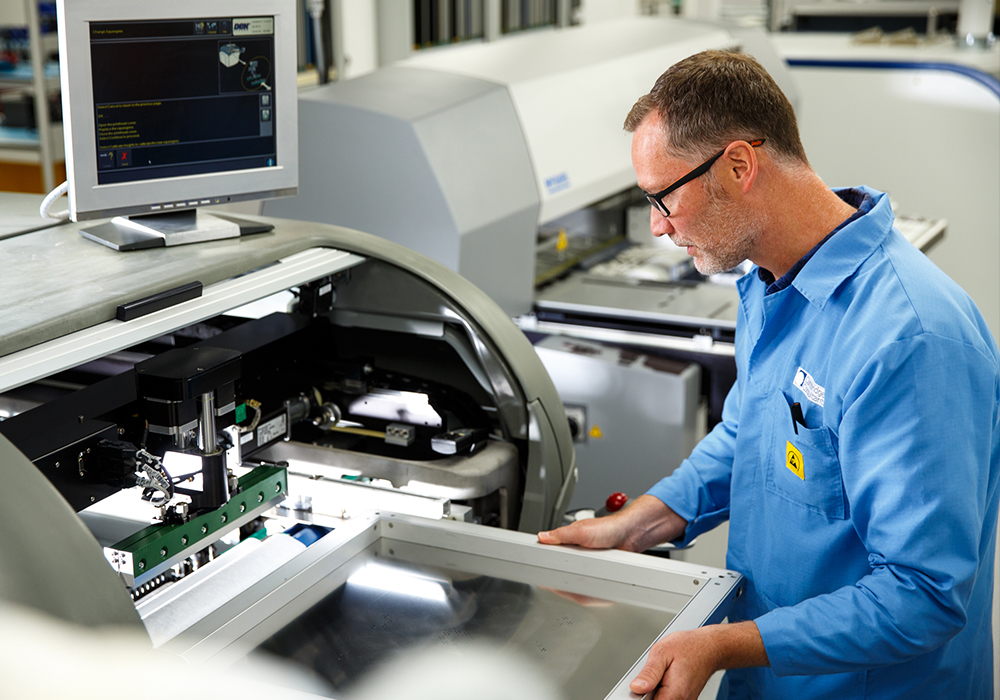 |
Electronic productionCC’s flexible, responsive and agile manufacturing facilities are ideally suited to electronic and electromechanical product builds, enabling us to rapidly build short product runs to an extremely high quality. We can build our own PCBAs using industrial representative equipment to ensure manufacturability during design. Having our own EPD facility is also extremely helpful in development, driving out DfX activities in eCAD and feeding test results back into the design process from an early stage. |
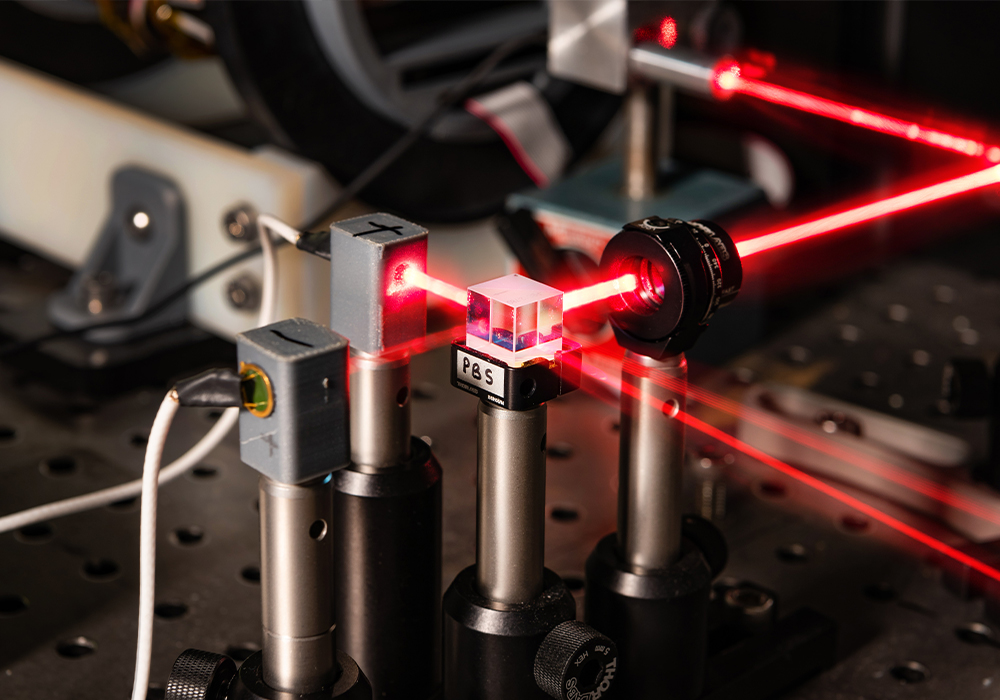 |
Optics labOur suite of optics labs enable us to build complex and high-precision optical layouts, typically for testing prototype designs and novel techniques before deployment. Featuring six high-spec optical benches with configurable interlocked controlled areas for high-power (class 4) laser work and specialist facilities for interferometry, spectroscopy, low-noise fluorescence imaging and photon counting. This space can be split into separate laser-controlled areas, allowing multiple experiments to run simultaneously, giving our optical engineers the capability to develop creative solutions without instrumentation restrictions. |
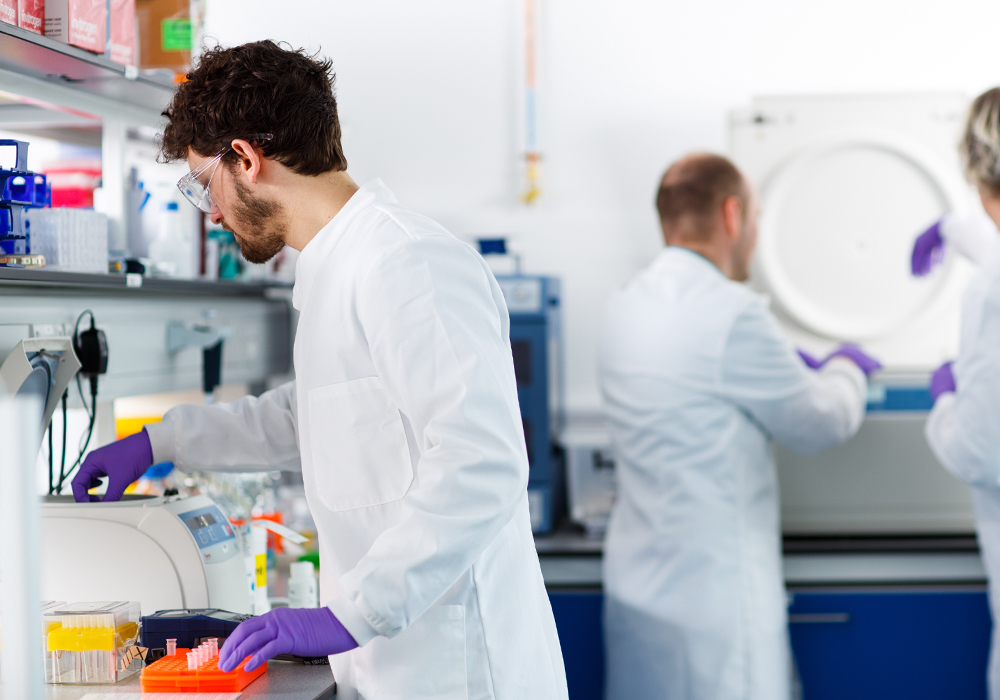 |
Physical science labOur wet and dry labs allow us to perform a wide range of physical science research and development. Specific equipment includes wet and dry benches, fume hoods, malvern mastersizer particle analysis system and UV-VIS spectrometer. We also have specialised equipment for the detection and chemical analysis of a wide range of organic substances down to parts-per-million levels or below. This allows us to determine the make-up of a very wide range of organic materials in solid, liquid or vapour form and investigate flavour and aroma chemistry. |
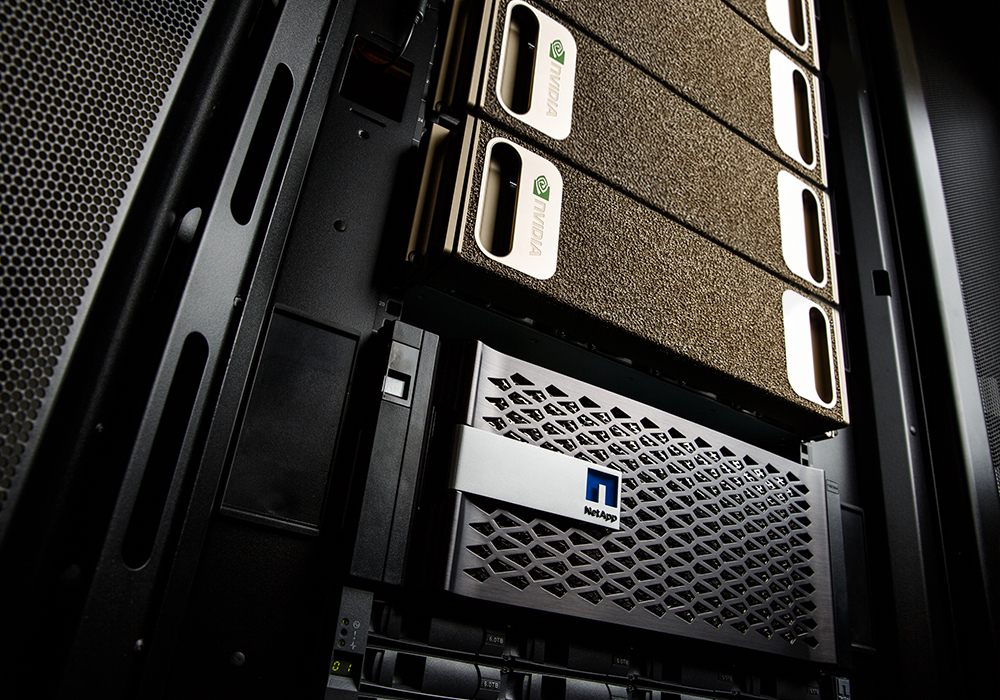 |
AI infrastructureCC’s comprehensive onsite compute infrastructure allows us to explore options and train and test models more rapidly to get better results. We run petaflop-scale, containerised compute on site, with multiple NVIDIA DGX-1 deep learning supercomputers and other GPU and FPGA-accelerated servers. This links to petabyte-scale local NetApp storage, project-specific cloud and our continuous integration systems. |
Our experts

Martin Brock
Chief Technology Officer

Dr Heidi Pinkney
Associate Director, Technology Strategy, Applied Science and Consulting

Dr Aidong Xu
Head of Semiconductor
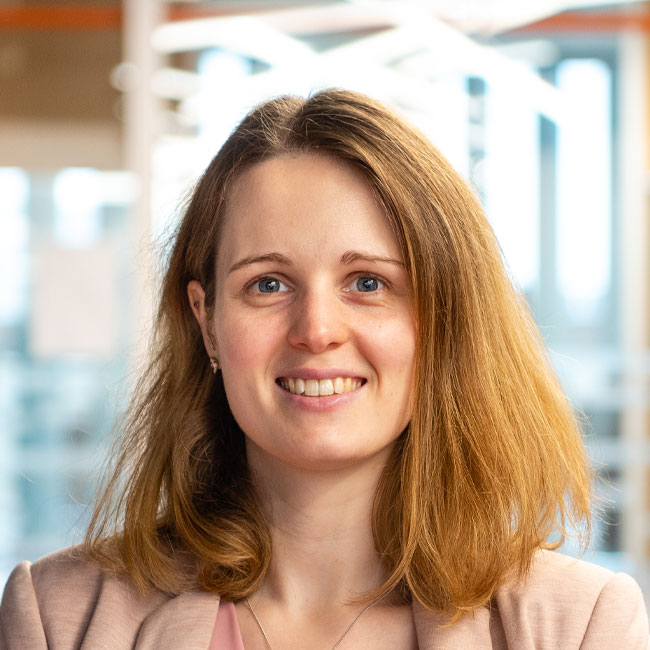
Jo Petrolati
Quantum Strategy Consultant
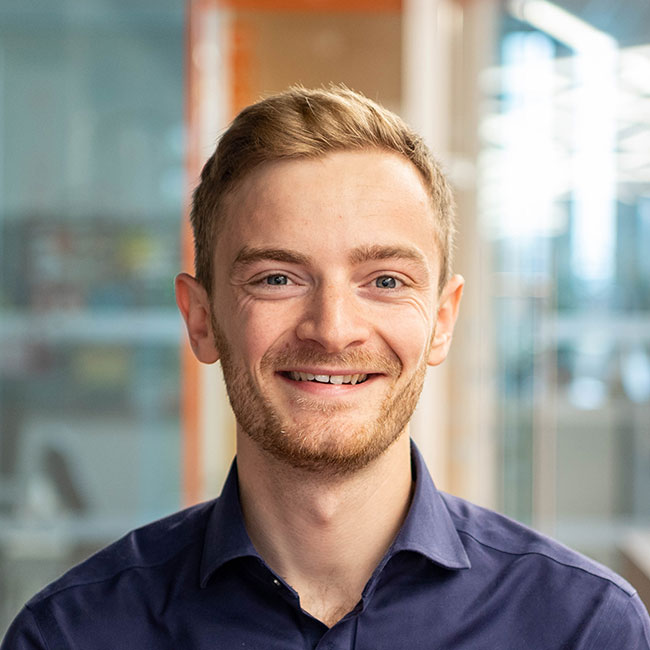
Tom Watson
Head of Photonics
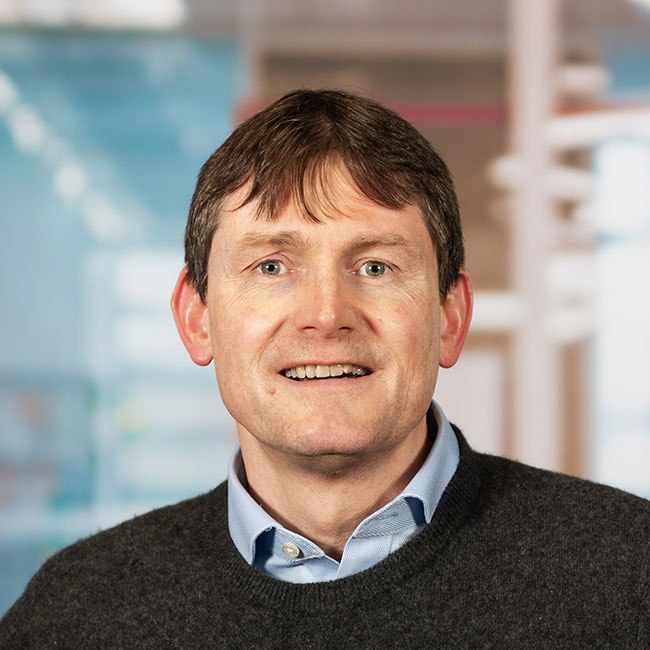
Bryan Donoghue
Associate Director and Hardware Department Leader



